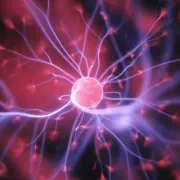Therapy Modalities
we provide individual therapy grounded in evidenced based practice modalites and trauma informed care

Cognitive Behavioral Therapy
Cognitive Behavioral Therapy (CBT) is a form of psychotherapy that helps individuals to identify and alter unhelpful thought patterns, change behaviors, and cope with challenging emotions.

Brainspotting
Brainspotting is a therapeutic approach aimed at treating emotional and psychological trauma. It is based on the premise that our gaze influences our emotions.

Cognitive Processing Therapy
Cognitive processing therapy (CPT) is a specific type of cognitive behavioral therapy that has been effective in reducing symptoms of PTSD that have developed after experiencing a variety of traumatic events including child abuse, combat, rape and natural disasters.

Dialectical Behavior Therapy
Dialectical Behavior Therapy (DBT) is a form of psychotherapy that combines Cognitive Behavioral Therapy with Eastern approaches, emphasizing acceptance and change.

Mindfulness Based Cognitive Therapy
Mindfulness Based Cognitive Therapy encourages people to become more aware of their internal states and to work on changing the way their thoughts affect their daily lives.

Narrative Therapy
Narrative therapy is a form ofthprapy that aims to separate the individual from the problem, allowing the individual to externalize their issues rather than internalize them. This therapy respects the agency and dignity of every client. It requires each client to be treated as an individual who is not deficient, not defective, or not “enough” in any way.

Emotional Focused Therapy
Emotionally Focused Therapy (EFT) is a therapeutic approach that incorporates elements of experiential therapy and person-centered approaches, systemic therapy, and attachment theory. It is based on the idea that human emotions are connected to human needs, and working through them can help individuals change distressful emotional states and improve interpersonal relationships.

Solution Focused Therapy
Solution-focused therapy is a type of treatment that highlights a client’s ability to solve problems, rather than why or how the problem was created. This therapy guides the client to envision a future without the problem with which they presented. With coaching and positive questioning, this vision becomes much more clarified.

Acceptance Commitment Therapy
Acceptance and Commitment Therapy (ACT) encourages people to embrace their thoughts and feelings rather than fighting or feeling guilty for them. In the case of ACT, you commit to facing the problem head-on rather than avoiding your stresses. Imagine committing to actions that help you facilitate your experience and embrace any challenge.

Attachment Focused Therapy
Attachment therapy is a type of therapy that fosters healing by focusing on trust and the ability to create deep and meaningful connections. It’s rooted in the ideas based on attachment theory, which acknowledges how childhood experiences can significantly impact future relationships.
A form of psychotherapy (talk therapy), attachment therapy can help you overcome past trauma and strengthen your sense of self-worth. It can be a valuable way to teach you how to trust others, and its benefits go much further.

Cognitive Behavioral Therapy
Cognitive Behavioral Therapy (CBT) is a form of psychotherapy that helps individuals to identify and alter unhelpful thought patterns, change behaviors, and cope with challenging emotions.

Brainspotting
Brainspotting is a therapeutic approach aimed at treating emotional and psychological trauma. It is based on the premise that our gaze influences our emotions.

Cognitive Processing Therapy
Cognitive processing therapy (CPT) is a specific type of cognitive behavioral therapy that has been effective in reducing symptoms of PTSD that have developed after experiencing a variety of traumatic events including child abuse, combat, rape and natural disasters.

Dialectical Behavior Therapy
Dialectical Behavior Therapy (DBT) is a form of psychotherapy that combines Cognitive Behavioral Therapy with Eastern approaches, emphasizing acceptance and change.

Mindfulness Based Cognitive Therapy
Mindfulness Based Cognitive Therapy encourages people to become more aware of their internal states and to work on changing the way their thoughts affect their daily lives.

Narrative Therapy
Narrative therapy is a form ofthprapy that aims to separate the individual from the problem, allowing the individual to externalize their issues rather than internalize them. This therapy respects the agency and dignity of every client. It requires each client to be treated as an individual who is not deficient, not defective, or not “enough” in any way.

Emotional Focused Therapy
Emotionally Focused Therapy (EFT) is a therapeutic approach that incorporates elements of experiential therapy and person-centered approaches, systemic therapy, and attachment theory. It is based on the idea that human emotions are connected to human needs, and working through them can help individuals change distressful emotional states and improve interpersonal relationships.

Solution Focused Therapy
Solution-focused therapy is a type of treatment that highlights a client’s ability to solve problems, rather than why or how the problem was created. This therapy guides the client to envision a future without the problem with which they presented. With coaching and positive questioning, this vision becomes much more clarified.

Acceptance Commitment Therapy
Acceptance and Commitment Therapy (ACT) encourages people to embrace their thoughts and feelings rather than fighting or feeling guilty for them. In the case of ACT, you commit to facing the problem head-on rather than avoiding your stresses. Imagine committing to actions that help you facilitate your experience and embrace any challenge.

Attachment Focused Therapy
Attachment therapy is a type of therapy that fosters healing by focusing on trust and the ability to create deep and meaningful connections. It’s rooted in the ideas based on attachment theory, which acknowledges how childhood experiences can significantly impact future relationships.
A form of psychotherapy (talk therapy), attachment therapy can help you overcome past trauma and strengthen your sense of self-worth. It can be a valuable way to teach you how to trust others, and its benefits go much further.

Cognitive Behavioral Therapy
Cognitive Behavioral Therapy (CBT) is a form of psychotherapy that helps individuals to identify and alter unhelpful thought patterns, change behaviors, and cope with challenging emotions.

Brainspotting
Brainspotting is a therapeutic approach aimed at treating emotional and psychological trauma. It is based on the premise that our gaze influences our emotions.

Cognitive Processing Therapy
Cognitive processing therapy (CPT) is a specific type of cognitive behavioral therapy that has been effective in reducing symptoms of PTSD that have developed after experiencing a variety of traumatic events including child abuse, combat, rape and natural disasters.

Dialectical Behavior Therapy
Dialectical Behavior Therapy (DBT) is a form of psychotherapy that combines Cognitive Behavioral Therapy with Eastern approaches, emphasizing acceptance and change.

Mindfulness Based Cognitive Therapy
Mindfulness Based Cognitive Therapy encourages people to become more aware of their internal states and to work on changing the way their thoughts affect their daily lives.

Narrative Therapy
Narrative therapy is a form ofthprapy that aims to separate the individual from the problem, allowing the individual to externalize their issues rather than internalize them. This therapy respects the agency and dignity of every client. It requires each client to be treated as an individual who is not deficient, not defective, or not “enough” in any way.

Emotional Focused Therapy
Emotionally Focused Therapy (EFT) is a therapeutic approach that incorporates elements of experiential therapy and person-centered approaches, systemic therapy, and attachment theory. It is based on the idea that human emotions are connected to human needs, and working through them can help individuals change distressful emotional states and improve interpersonal relationships.

Solution Focused Therapy
Solution-focused therapy is a type of treatment that highlights a client’s ability to solve problems, rather than why or how the problem was created. This therapy guides the client to envision a future without the problem with which they presented. With coaching and positive questioning, this vision becomes much more clarified.

Acceptance Commitment Therapy
Acceptance and Commitment Therapy (ACT) encourages people to embrace their thoughts and feelings rather than fighting or feeling guilty for them. In the case of ACT, you commit to facing the problem head-on rather than avoiding your stresses. Imagine committing to actions that help you facilitate your experience and embrace any challenge.

Attachment Focused Therapy
Attachment therapy is a type of therapy that fosters healing by focusing on trust and the ability to create deep and meaningful connections. It’s rooted in the ideas based on attachment theory, which acknowledges how childhood experiences can significantly impact future relationships.
A form of psychotherapy (talk therapy), attachment therapy can help you overcome past trauma and strengthen your sense of self-worth. It can be a valuable way to teach you how to trust others, and its benefits go much further.
